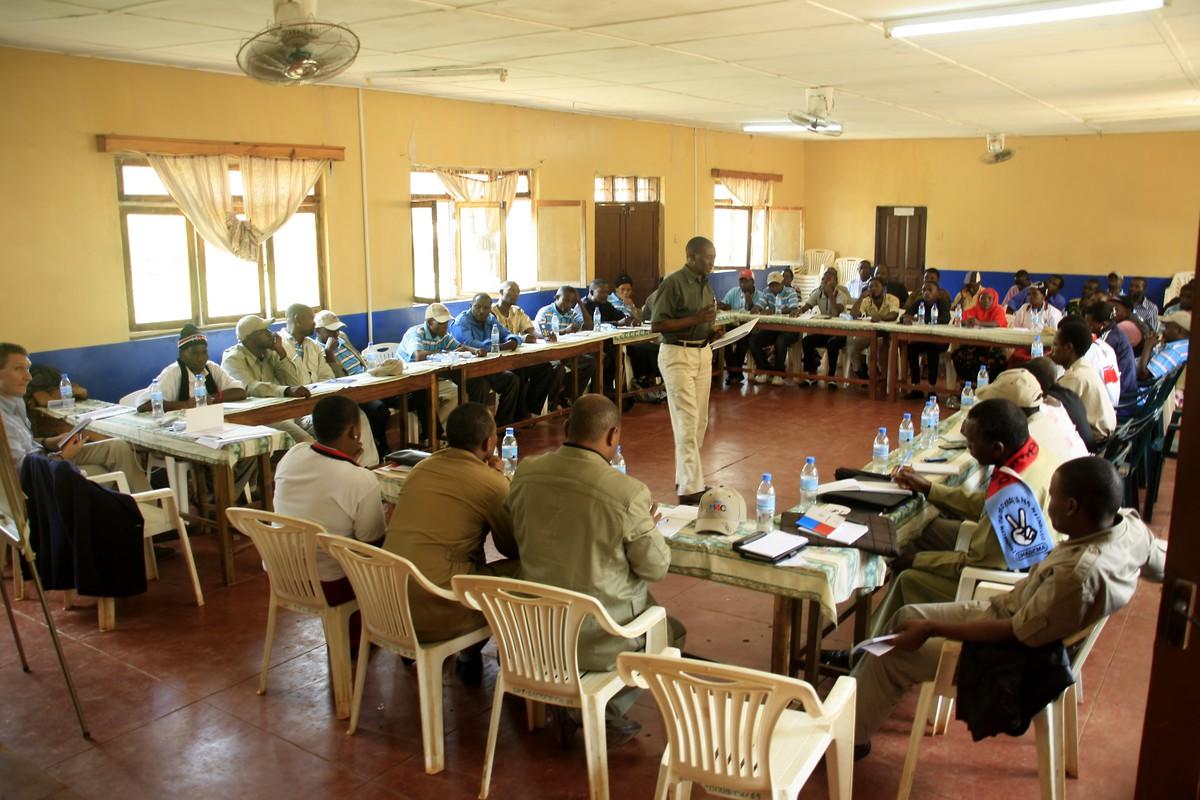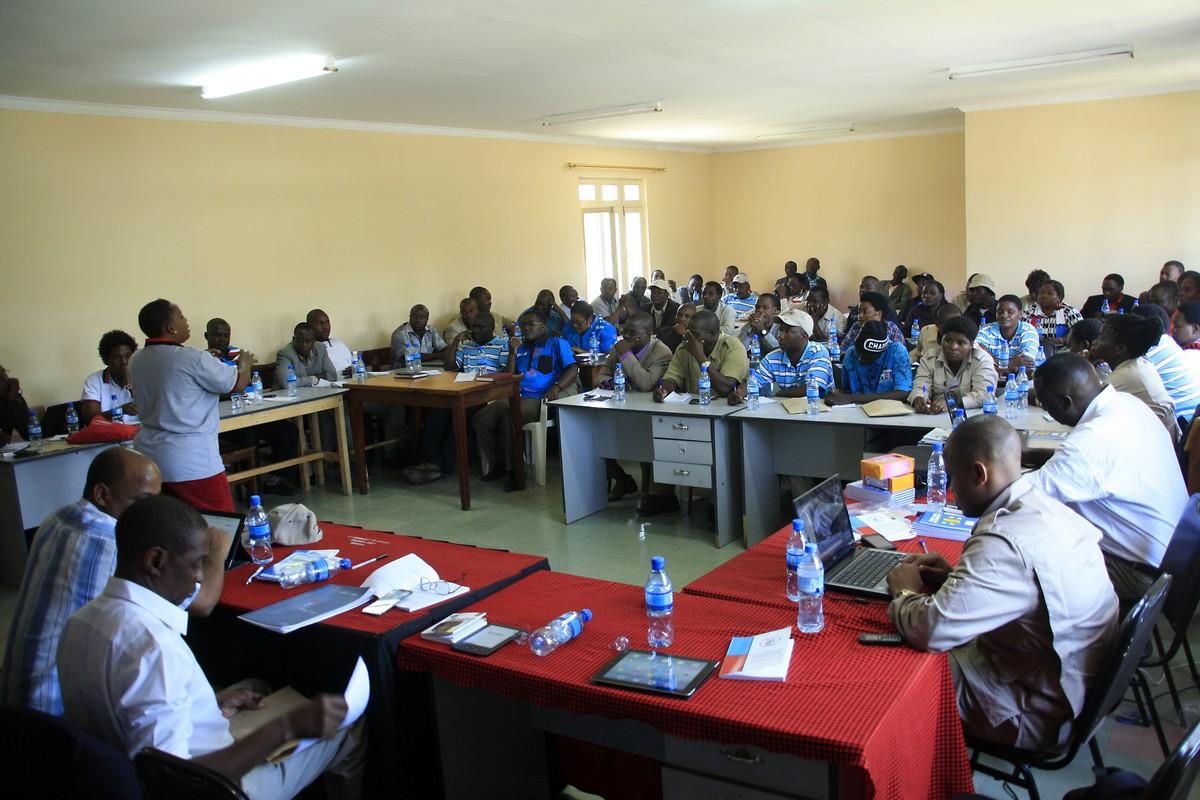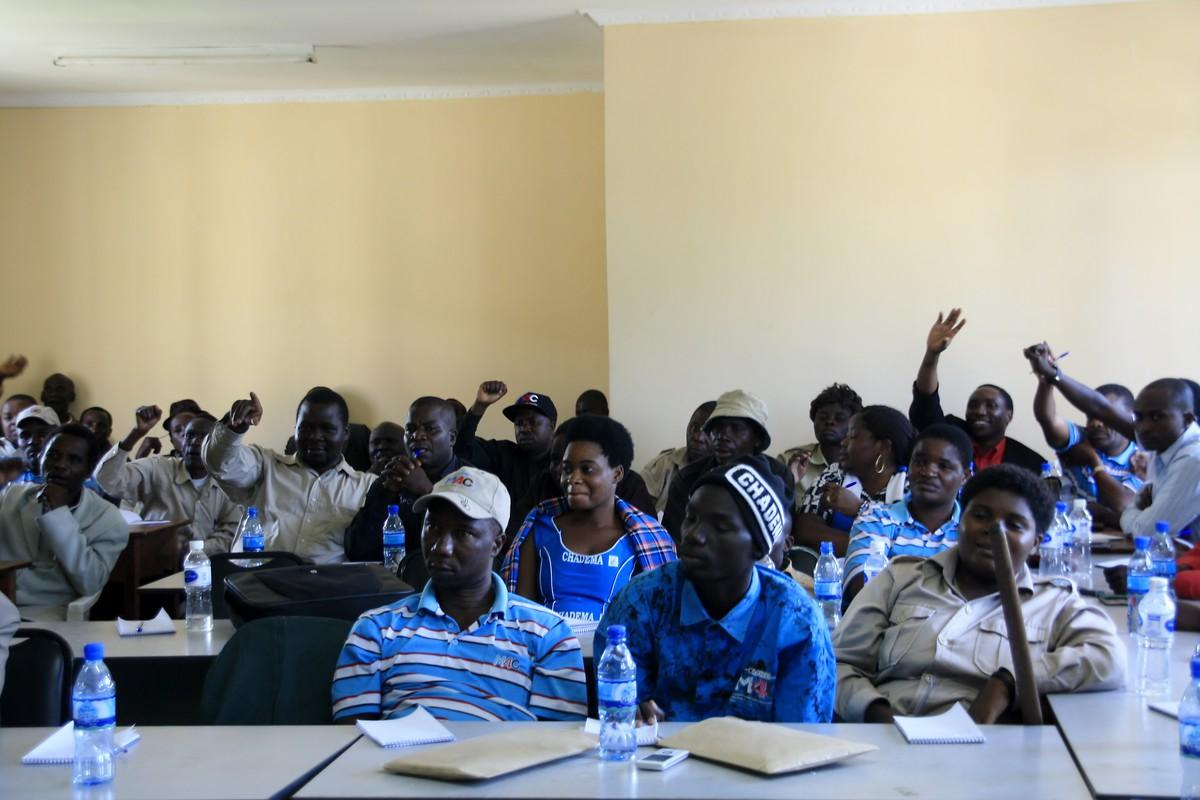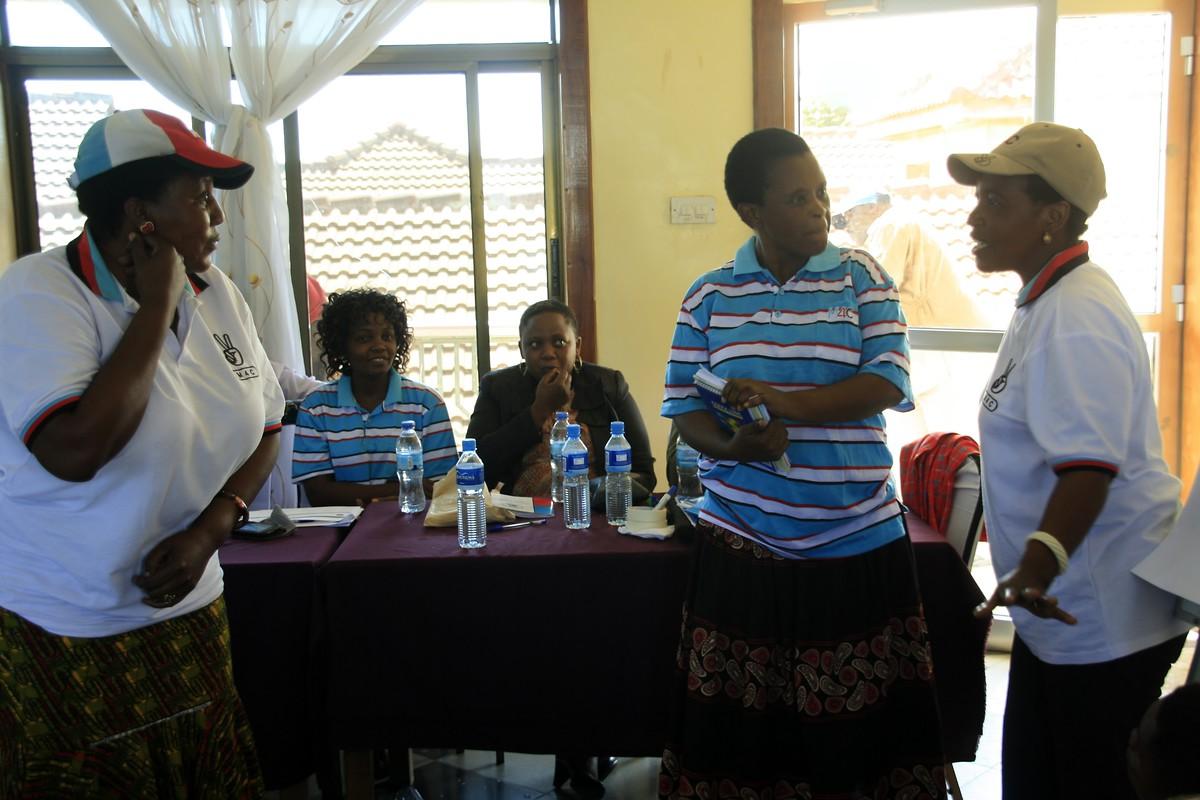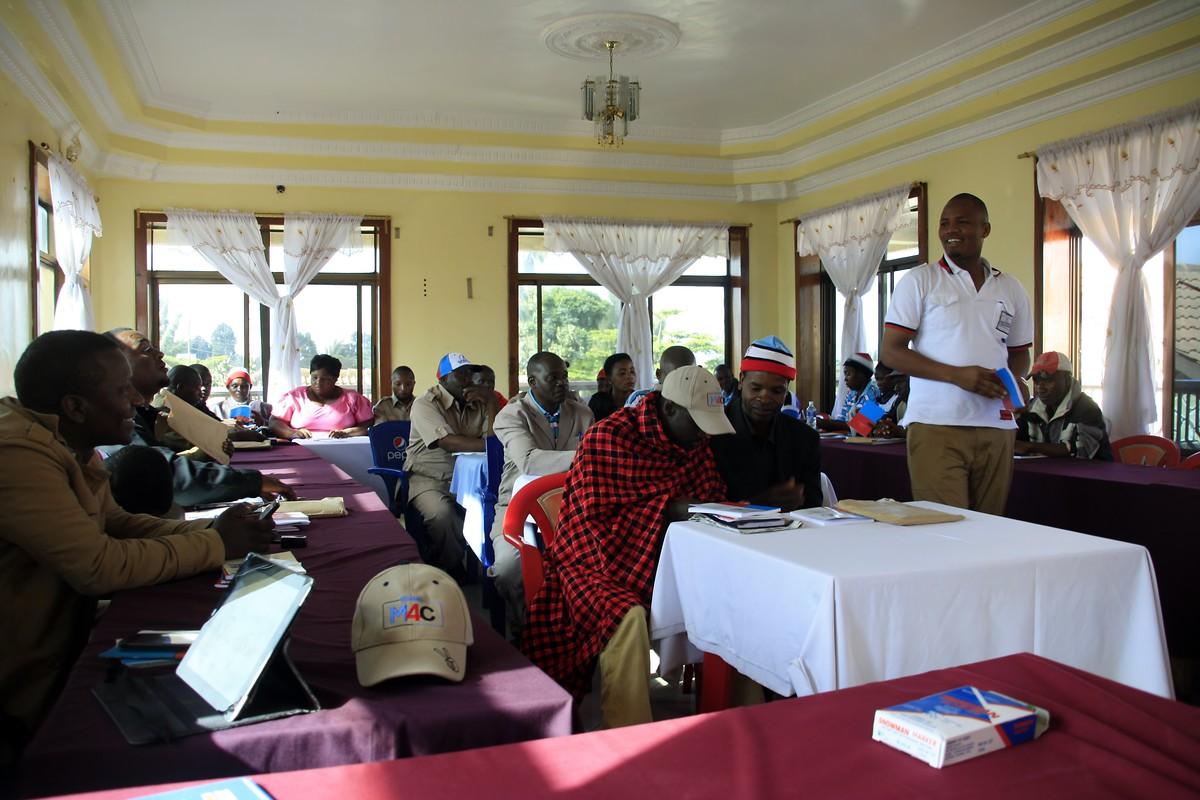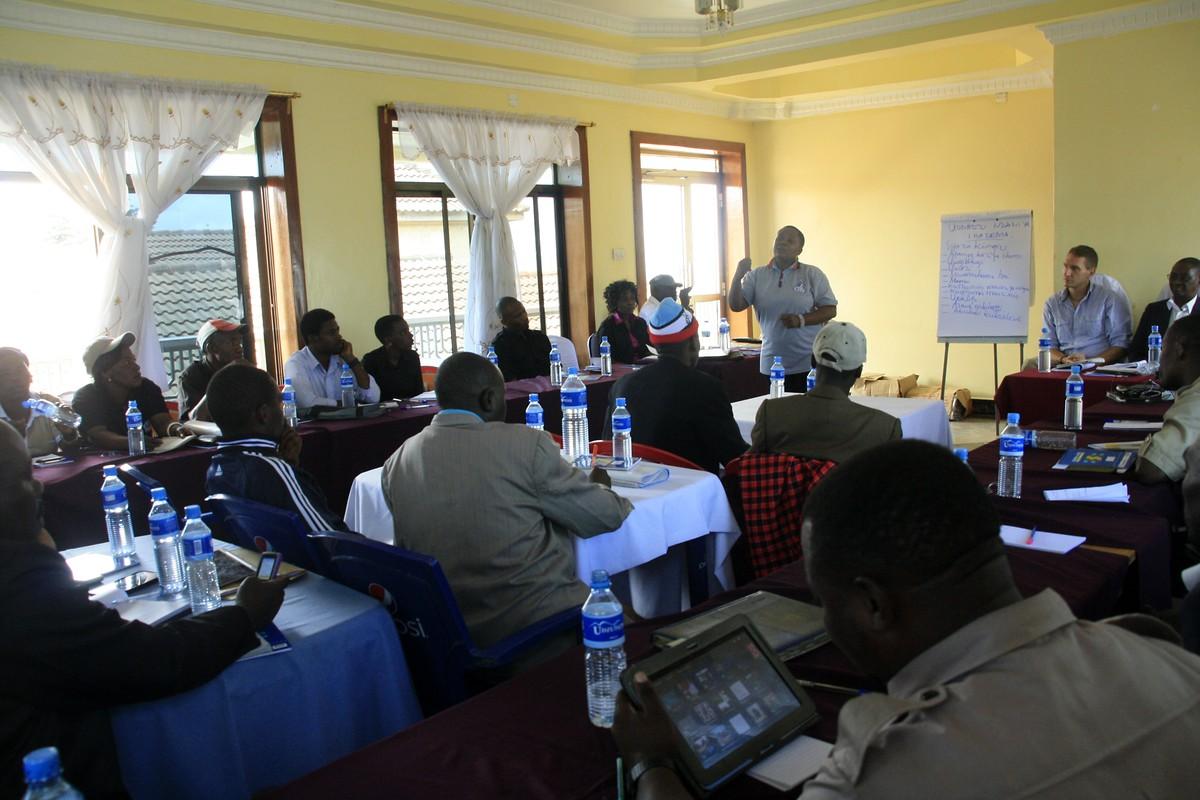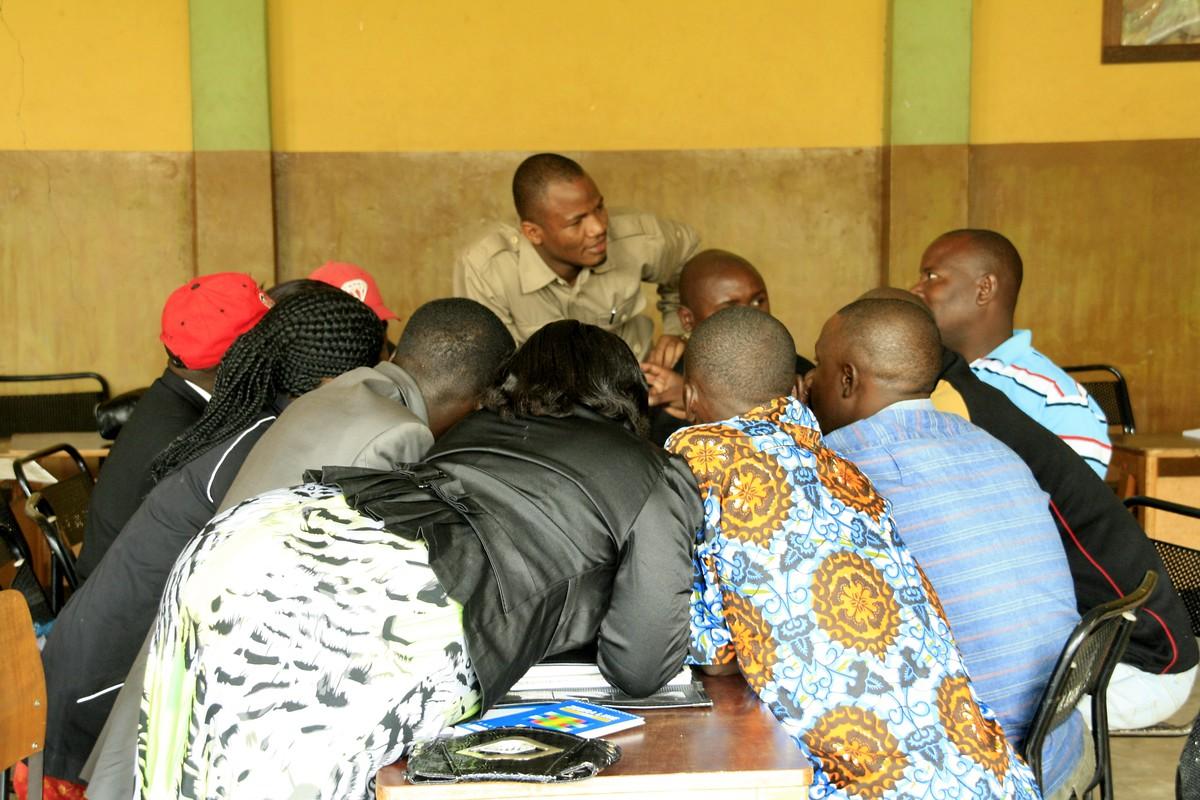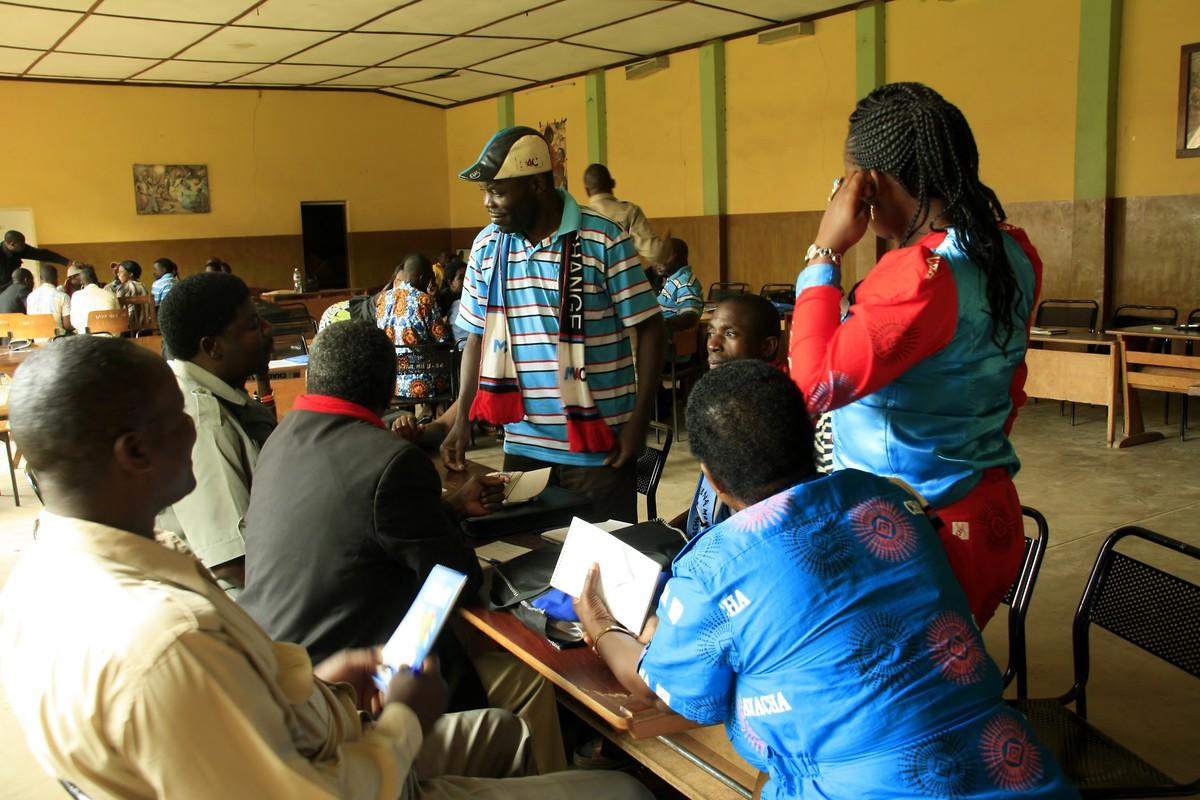Event reports
The operational area of the first group included Morogoro, Dodoma, Singida and Iringa. The training places of the second group were Revuma, Njombe, Mbeya and Rukwa. The third group focused with the Eastern Lake Zone: Mwanga, Geita and Kagera and the fourth group with the Western Lake Zone: Shinyanga, Simyu and Mara. In Tanga, Moshi, Arusha and Manyara trainings were organized by the fifth group. Furthermore the sixth group arranged three training places in Dar es Salaam and another one in the Coastal Region. The advanced training program was very welcomed by the people and the participation exceeded all expectations.
During their training sessions which were divided into two days per area, the participants and trainers had enough time to intensively discuss the following questions: How can the fundamental convictions, principles and guidelines of CHADEMA be implemented into specific politics? How can the elected regional and local leaders understand their positions as representatives of the local population associated with upcoming responsibilities in a better way? What are the daily challenges and happenings for the local politicians? What are their political rights and duties? How can the power of the local constitution be strengthened while reducing the power and intervention of the central state in local affairs? What are the main values and programmatic guidelines of CHADEMA and how do they distinguish it from other political parties?
During the training sessions the trainers emphasized the meaning of local structures relating to a well working democracy and highlighted the meaning of intra-party unity and communication. They mentioned close contact and cooperation with the citizens, output-oriented work and transparency as their most important and indispensable aims which the local politicians should integrate into their work. These three aspects are crucial for the citizens’ trust in the party. CHADEMA should prove on a local level, especially in these municipals where they are already in power, that they have an agenda which emphasizes a political change, anti corruption and an output-driven policy.
Besides the training sessions the trainer groups supported the local politicians to overcome different intra-party conflicts and identified and solved some structural problems within the party.
All participants of the 22 training units perceived the training program as very helpful; they especially appreciated the training materials in Swahili, provided by KAS Tanzania. Many participants stated that they felt much better informed about their rights and duties now and that they became more confident towards their responsibilities. Furthermore they mentioned that they are now, thanks to the exchange of ideas with other politicians, more aware about the importance of transparency and how it influenced the success of CHADEMA and how important their local policies are for the implementation of their vision in the nationwide politics.
It will be the task of all participants to educate the approx. 47.000 newly elected village and street chair persons and members of the village and street committees of CHADEMA, which have been elected during the local elections in December 2014.
KAS and CHADEMA are connected through the conviction that closeness to the citizens, transparency, accountability and a successful, public welfare orientated policy has to be the base for a democratic party. Permanent success in the democratic competition of the Tanzanian multi-party system is not possible without a strong connection to and within each of the different counties. According to this background the joint trainings will be continued in the future. The program will resume only after the elections in October 2015 in order to draw a clear line between the permanent training and capacity building for political leaders, which is supported by KAS, and the electoral campaign, that is not supported by KAS.



